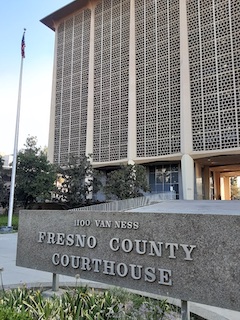An ex post facto law is a prohibited law. It is a law that applies to events occurring before its enactment and which disadvantages the offender either by altering the definition of criminal conduct or increasing the punishment.
People v. Delgado (2006) 140 Cal. App. 1157, 1163.
While the
Delgado case is from 2006, ex post facto laws have been prohibited since the time of our country’s birth. Our U.S. Constitution, at Article I, section 10, prohibits such laws, as does the California State Constitution, at Article I, section 9.
Brief Synopsis: An ex post facto law is one that makes some act or conduct a crime after it took place even though at the earlier time it was legal, or it is a law that increases punishment retroactively. This type of law is illegal.
In today’s courthouses, how could anyone be convicted or sentenced under an ex post facto law? It seems like such a simple concept would, after all, be quite easy to avoid, correct?
The answer is surprisingly, not necessarily, as the following case exemplifies.
Benjamin Rojas was a married man, with an eight year old step daughter. On August 6, 2011, his wife woke up in the middle of the night and found herself alone in bed. After getting up and searching through the house, she found Mr. Rojas in their daughter’s bed.
 Court of Appeal Fifth Appellate District Fresno
Court of Appeal Fifth Appellate District Fresno
Mr. Rojas was completely naked and their daughter was naked from the waist down. According to the mother’s testimony at trial, the child accused Mr. Rojas of touching her vaginal area with his fingers. She also described how her father had molested her “a few times.” The wife also said her daughter told her he had used his mouth and penis while touching her in her vagina and anus.
Later, the daughter told investigators that her father had molested her continuously since she was three or four years old. Mr. Rojas also confessed to police that he had inserted his fingers into his daughter’s vagina in 2011, but that this was the first and only time he had done so. Semen stains were also found in the victim’s bed.
Rojas was charged and convicted by a jury in only one hour. He was convicted of violating Penal Code § 288.7(b), oral copulation or sexual penetration of a child under ten years old; sexual intercourse or sodomy with a child under the age of ten (Penal Code § 288.7(a)); and continuous sexual abuse of a child under the age of 14 years (Penal Code § 288.5).
 Fresno County Courthouse
Fresno County Courthouse
The Fresno County judge hearing the matter sentenced Rojas to a total of 40 years to life in prison. As to the oral copulation or sexual penetration count (288.7(b)), he was sentenced to a mandatory term of 15 years to life in state prison. As to the sexual intercourse or sodomy count (288.7(a)), he was sentenced to 25 years to life, to be served consecutively to the first 15 year term. As to the 288.5 count, the judge sentenced Rojas to 12 years, but stayed this under Penal Code § 654.
Rojas appealed the verdict and sentence on many grounds, but this article will only focus on the ex post facto argument. Rojas brought up the fact that his sentences of 25 years and 15 years to life were based on a violation of Penal Code § 288.7, which did not become effective until September 20, 2006, yet the jury found he had violated this beginning on August 12, 2005.
In other words, the jury was instructed upon the elements of violating Penal Code § 288.7 and was then asked if it was true Rojas had violated this law beginning on and after August 12, 2005. The jury was not asked to specify when Rojas committed such offenses. The prosecutor made a mistake in not noticing this problem.
Consequently, the Fifth Appellate District Court, in
People v. Benjamin Rojas (2015 DJDAR 7959) found it reasonable to assume the jury could have included instances of abuse that occurred before September 20, 2006, when the statute went into effect. In other words, the verdict’s effect was to criminalize conduct or make punishment worse than what it was before the statute went into effect (punishment was indeed less before September 20, 2006).
The appellate court thus reversed Rojas' conviction for violating Penal Code § 288.7 and vacated the prison sentence, but remanded the case back to the trial court for resentencing under the third count, the charge relating to continuous sexual abuse of a child under age 14 because the sentence was previously stayed in light of the 40 year sentence.
The citation for the Fifth Appellate District Court ruling discussed above is People v. Benjamin Rojas (5th App. Dist., 2015) 237 Cal.App.4th 1298.
For more information about other laws that have been found unconstitutional, click on the following articles:
- California’s DNA Act is Declared Unconstitutional by the California Appellate Court.
- Orange County’s Standard Sex Offender Probation Conditions, Imposed In Hundreds Of Cases Since 2003, Are Unconstitutional.
- Court Decides California Sex Offender Law Is Unconstitutional By Barring Those Convicted of Misconduct with Persons under 14 From Relief From PC 290 Registration.
Contact us.  Court of Appeal Fifth Appellate District Fresno
Court of Appeal Fifth Appellate District Fresno Fresno County Courthouse
Fresno County Courthouse